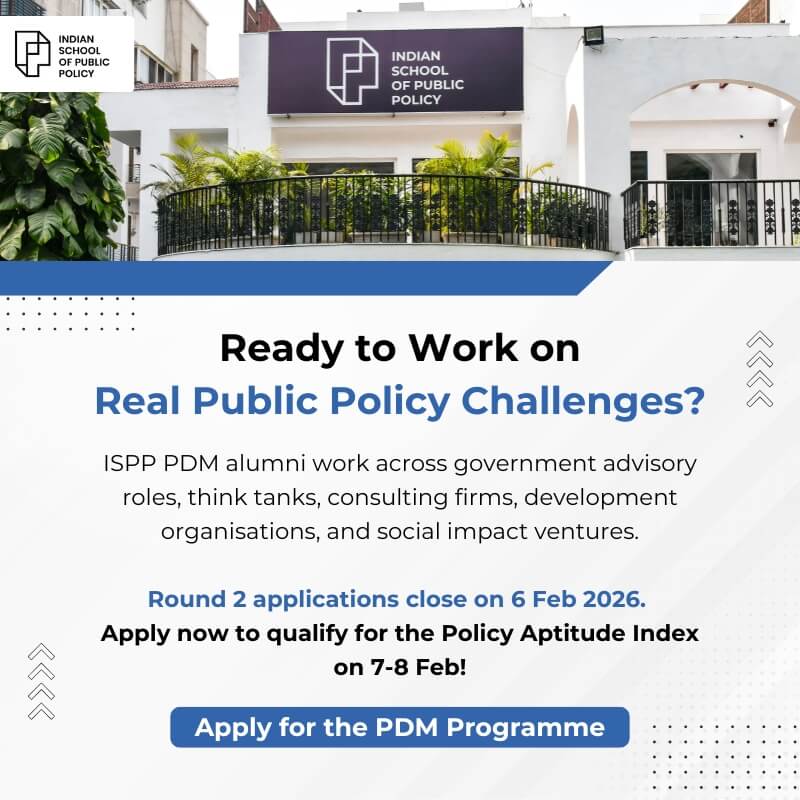After graduating from law school, I worked with an advocate in the Delhi High Court on civil and criminal matters. Questions of my own morals and ethics first struck in a professional setting when we received a new allegation of money laundering against our client. I was tasked with conducting all the due diligence, analysing… Continue reading Relevance of Ethics for Governance, Policy Making and its Limitations
Category: Policy Review
Thoughtful policy reviews from ISPP covering analysis, critique, and perspectives on key public policies shaping India’s governance and development.
Relevance of Ethics for Governance, Policy Making and its Limitations
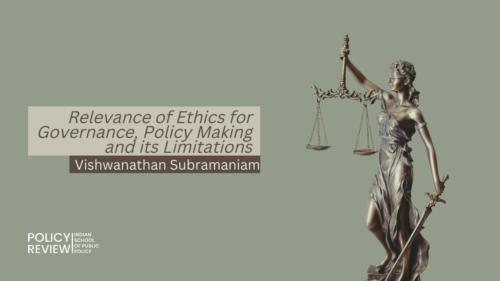
Revdi Culture for Vote bank: A Fact-check on Economy
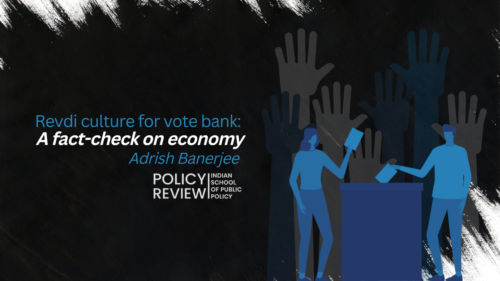
On 16th July 2022, Prime Minister Narendra Modi, while addressing the crowd during the inauguration of the newly built Bundelkhand Expressway in Uttar Pradesh, said that “Revdi Culture” (freebies) for votes should be done away with. He emphasized that freebies do no good for the development of the country. Debate on Revdi Culture ‘Revdi’ is… Continue reading Revdi Culture for Vote bank: A Fact-check on Economy
Digitalisation of Diplomacy
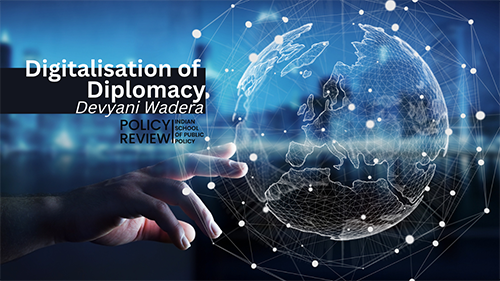
With the advancement of technology and the ultimate rise of the internet, a new digital age has dominated the 21st century, leaving no field untouched by its presence. The world has undergone a rapid process of digitalization which has accelerated real-time communication and dissemination of information among people, ensuring that everything is just a click… Continue reading Digitalisation of Diplomacy
The Issues With the Rehabilitation Policy of Kashmiri Migrants

With the onset of militancy in Kashmir during 1989-1990, many Kashmiris had to migrate from the valley to Jammu and areas. According to the data from the Department of Relief and Rehabilitation, Government of Jammu and Kashmir, 44,167 registered migrant families live in Jammu. Amongst them, 39,868 are Kashmiri Pandit families, 2,574 are Kashmiri Muslim… Continue reading The Issues With the Rehabilitation Policy of Kashmiri Migrants
India’s Policy Challenges for 2022
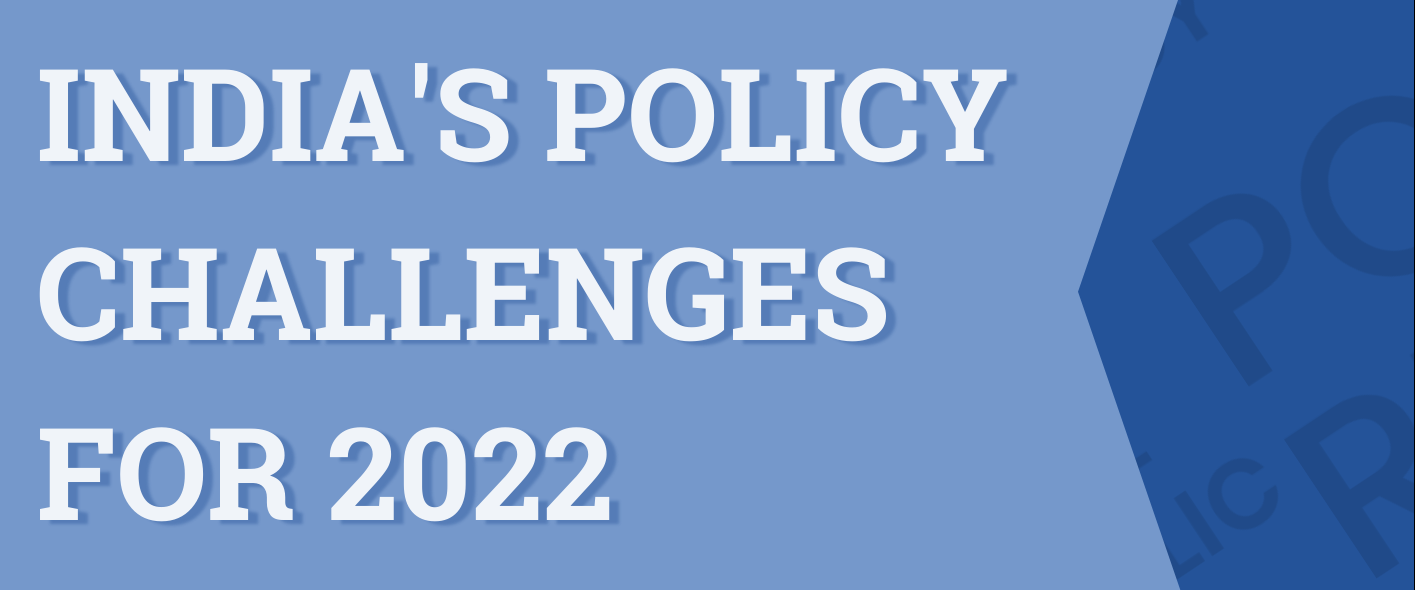
Dear Reader, We, at the ISPP Policy Review, are elated to release the first journal edition for the academic year 2021-22.Our theme is India’s Policy Challenges for 2022. This edition will flow through perspectives on education, gender, rural India, the role of technology in empowering SMEs, and also on how behavioural interventions could help curb… Continue reading India’s Policy Challenges for 2022
Maharashtra’s Water Banks: A Looming Banking Crisis without a Bailout Option
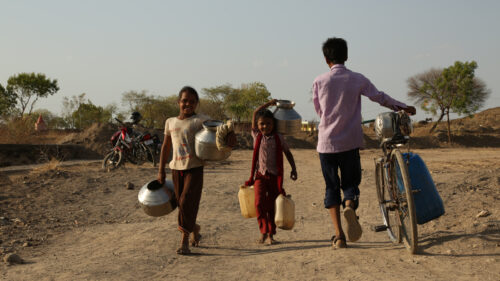
In the 1860s, England was facing an acute shortage of coal. Some experts contended that improving technology would reduce coal consumption. But contrary to this, technological improvements that increased the efficiency of coal led to the increased consumption of coal in a wide range of industries. English Economist William Stanley Jevons argued that technological progress… Continue reading Maharashtra’s Water Banks: A Looming Banking Crisis without a Bailout Option
Improving the Swachh Bharat Mission through behavioural interventions
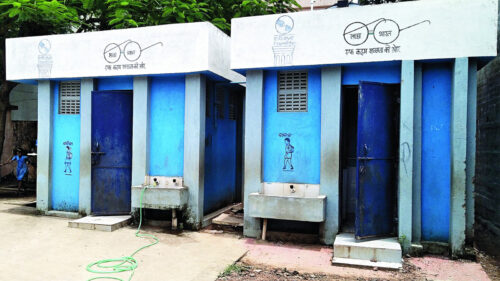
The Swachh Bharat Mission (SBM) was initiated in 2014 to achieve universal sanitation coverage. The cleanliness drive aimed to make citizens health-conscious by providing financial incentives for solid/liquid waste management (SLWM), toilet construction, technical assistance, and capacity building (Aijaz, 2017). The Swachh Bharat Mission has successfully executed its target of toilet construction with about 99%… Continue reading Improving the Swachh Bharat Mission through behavioural interventions
In Conversation with Prerna Mukharya: Data and Public Policy
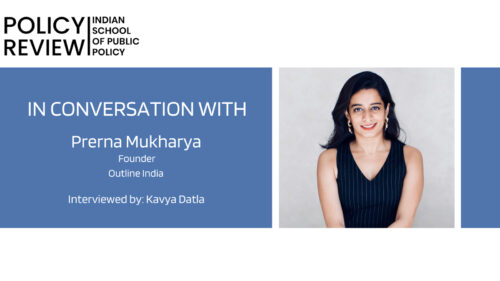
In this interview, Prerna talks about the importance and necessity of credible data in the policy making process. The interview is conducted by ISPP Scholar, and Executive Editor of the Policy Review, Kavya Datla.
Quality Education and Expanding Learning Opportunities – Challenges in the EdTech Space

India has successfully improved school enrolment in recent decades yet failed to deliver actual learning. The ASER Survey by NGO Pratham (2020) spotlights large learning deficits in students’ foundational learning. For instance, only 50% of Class V students can read texts of Class II level. More than half the students in Class VIII struggle to… Continue reading Quality Education and Expanding Learning Opportunities – Challenges in the EdTech Space
In Conversation with Dr Sanjaya Baru: Elections 2022
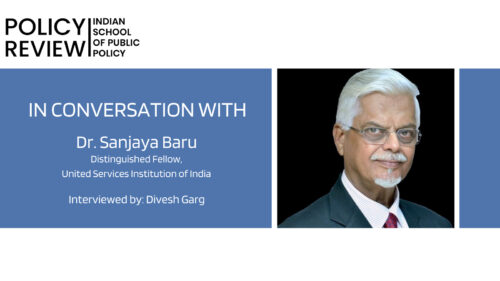
In this interview, Dr Baru talks about the upcoming 2022 state elections and the current Indian political landscape. The interview is conducted by Indian School of Public Policy scholar, Divesh Garg.

